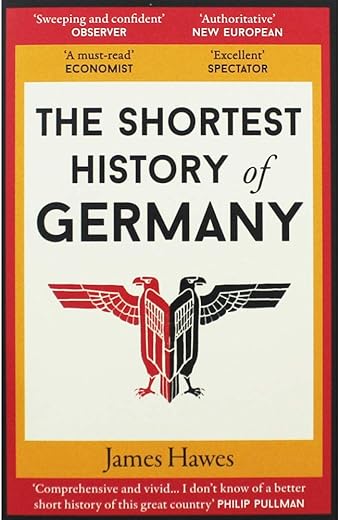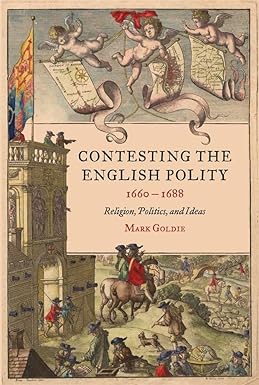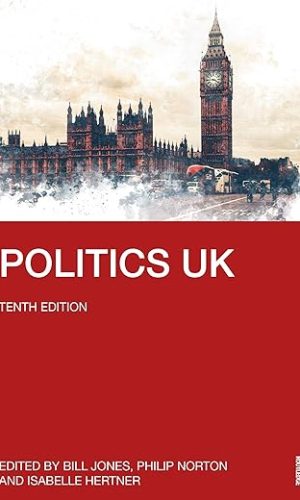The Shortest History of Germany: 2
£7.50£8.50 (-12%)
Read in an afternoon. Remember for a lifetime.
In his acclaimed new bestseller, now in paperback, James Hawes tells the story of Europe’s most admired and feared country, from Julius Caesar to Angela Merkel. With more than 100 maps and images, this is a fresh, concise and entertaining attempt to answer the question: are the Germans really us, or them?
*240 PAGES. 100+ MAPS AND IMAGES. 2,000 YEARS OF GERMAN HISTORY.*
In his acclaimed new bestseller, now in paperback, James Hawes tells the story of Europe’s most admired and feared country, from Julius Caesar to Angela Merkel. With more than 100 maps and images, this is a fresh, concise and entertaining attempt to answer the question: are the Germans really us, or them?
*240 PAGES. 100+ MAPS AND IMAGES. 2,000 YEARS OF GERMAN HISTORY.*
Read more
Additional information
| Publisher | Later Edition (1 April 2018), Old Street Publishing |
|---|---|
| Language | English |
| Paperback | 240 pages |
| ISBN-10 | 1910400734 |
| ISBN-13 | 978-1910400739 |
| Dimensions | 12.9 x 2 x 19.8 cm |










by Omar
It was an eye opener, I gleaned valuable knowledge I knew little about before. There is a big information gap in the media and education I think this book sheds a good light. The writer is overtly biased towards Eastern Germany and their capability to change, I would be wary of taking this view at face value. Apart from that I’d recommend it.
by Omar
If you have any general interest in Germany (I recently moved there), then this book is a great starter tome to understand the historical background. The author has a snappy, breezy tone which might not be to the liking of all, but I did not have a problem with it.
The author has some very clear opinions about the long-standing differences between East and West Germany (way pre-dating the post-war partitioning). My sense reading it was that there might be historians who would quibble about some of his assertions there, but this did not bother me because, in his chatty style, it did not give the impression of passing off opinion as definitive historical fact.
Like many histories that extend from pre-history to the modern day, the pace slows the closer we get to the here and now. Personally, I could have done with a bit more on the earlier periods and a little less on the Nazis and post-war period, but the book is short enough that this hardly bothered me.
Highly recommended for anyone wanting a short introduction to the subject.
by Tony Warcus
As with many other titles in this series (including Hawes’ own The Shortest History of England), the writer manages to pack a huge span of history into just over 200 pages without toppling over into absurdity. Clearly this can be no more than a whistle stop tour – the main historical landmarks are covered, enhanced by a range of very useful maps and diagrams. A minor reservation is that the visuals are rather crammed onto the page.
Hawes has a compelling argument about the legacy of geography and religion on Germany’s political history (with Western and southern regions favourably contrasted to East Elbia) and he appears sceptical of the “re-unification” project. He identifies the greater tendency for the East to be sympathetic with Far Left and Far Right parties but clinging to the ideal of the, by his account, more democratically inclined Western side he prefers doesn’t get us far. I consider the conclusion, with its dated journalistic prognosis of political developments as of 2017 (to which a post Ukraine invasion comment is added in 2022), to be the least valuable section. A handy overview generous enough to reference other historians who offer more in-depth analysis than would be possible within the constraints of this format.
by Amazon Customer
It is a fascinating book I would recommend to anybody. Here are few thoughts and critical remarks, but they do not undermine the fact that his key message is spot on: Mr Hitler did not come from planet Mars, and the roots of the disaster were Prussians.
So here are my few doubts:
While the maps are hard to refute and the continuity is stunning, I would focus even more squarely on Prussia. What I would introduce is the language of extractive institutions. Acemoglu and Johnson say nothing about Prussia in the first book (Why Nations Fail), but Prussia features in their second book (Narrow Corridor, esp. Chapter 9, Devil in Details). What they say is consistent with Hawes, just I think adds analytical clarity. The point is that Prussians were not different people than Germans, they were all migrants from the West. It is just that Junkers were placed in an extractive regime, colonial situation.
Two minor points:
Because Hawes wants to emphasise the main point, he does not account for how more complex Prussian history actually was. He oversimplifies when saying that the Hanzatic League was in cahoots with Teutonic Knights. The conflict between the German speaking cities of Prussia / Pomerania and the Prussian state that teamed with Junkers was long and intensive. The cities were siding with Poland and were supported by Poles right until the end of 17th century, when Poland was mortally weakened itself.
With Lutherans Hawes may be overemphasising doctrine. I think by a very fact that Catholicism has an international dimension and loyalty to Rome, it is more difficult (albeit not impossible) to shape it in full into some nationalist state-worshipping.
And finally, while the book is brilliant it would outrage the Polish readers on few occasions. Poles are pretty sensitive to how they are portrayed, and this is because since anybody remember the Germans portrayed them as stupid, lazy, disorganised lunatics, devoid of any culture and science (in German version all what was of value was done by Germans who settled in Poland).
Copernicus is a prime example. To present him as Prussian-born would send most of Poles into blind rage. He actually spent time organising defence of the towns of Warmia (that is: Polish Prussia, never mentioned in the book) against Teutonic Knights in 1520. Frombork, the place where he did his experiments, was actually plundered by Knights of Maria. I went to school in Warsaw with a colleague, whose uncle risked his life during the Nazi occupation, restoring the original Polish inscription on the Copernicus monument. This is how important it always was to the Poles.
Then there is a battle of Vienna, 1683, Hawes presents as settled by Habsburg coalition. The battle was actually settled by the largest cavalry charge in military history, of winged hussars, charging down the hill, led by king Sobieski. Not that the king liked Habsburgs. He did not, his friends were French. It is just he had no choice. Turkey was harassing Polish Ukraine at least for a century, and from Vienna their next move could be Kraków. Winning this battle and few more he finished those wars for good. And at the end of day, a century later, it was better for southern Poland to fall to Austria than to Turkey. Habsburgs and their historiographers wanted to erase memory of Sobieski from the day after the battle.
And finally, talking about 1989 without mentioning Solidarity would also annoy anybody in Poland. Gorbatchev was a necessary condition yes but not a sufficient one; the process was triggered by Poles, and any East German dissident would confirm that (and they did more than once). And the great escape from DDR started with Germans swimming Odra/Oder and occupying ground around West German embassy in Warsaw.
Despite that, I love the book.
by Tim Williams
…. though I still find the boundary shifting over centuries a little confusing. Having said that James Hawes delivers absolute clarity with regard to the 20th Century when quite a lot happened!